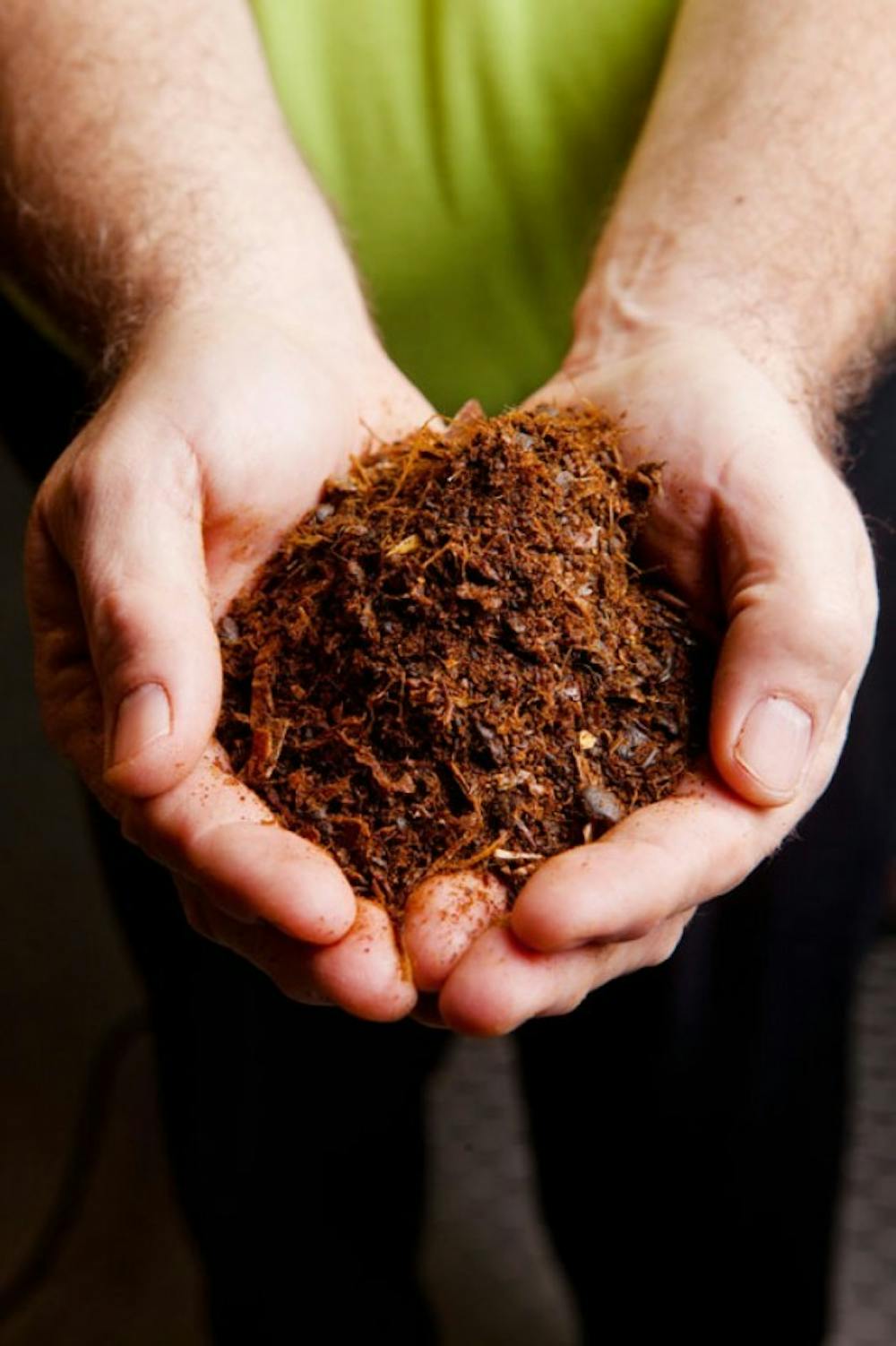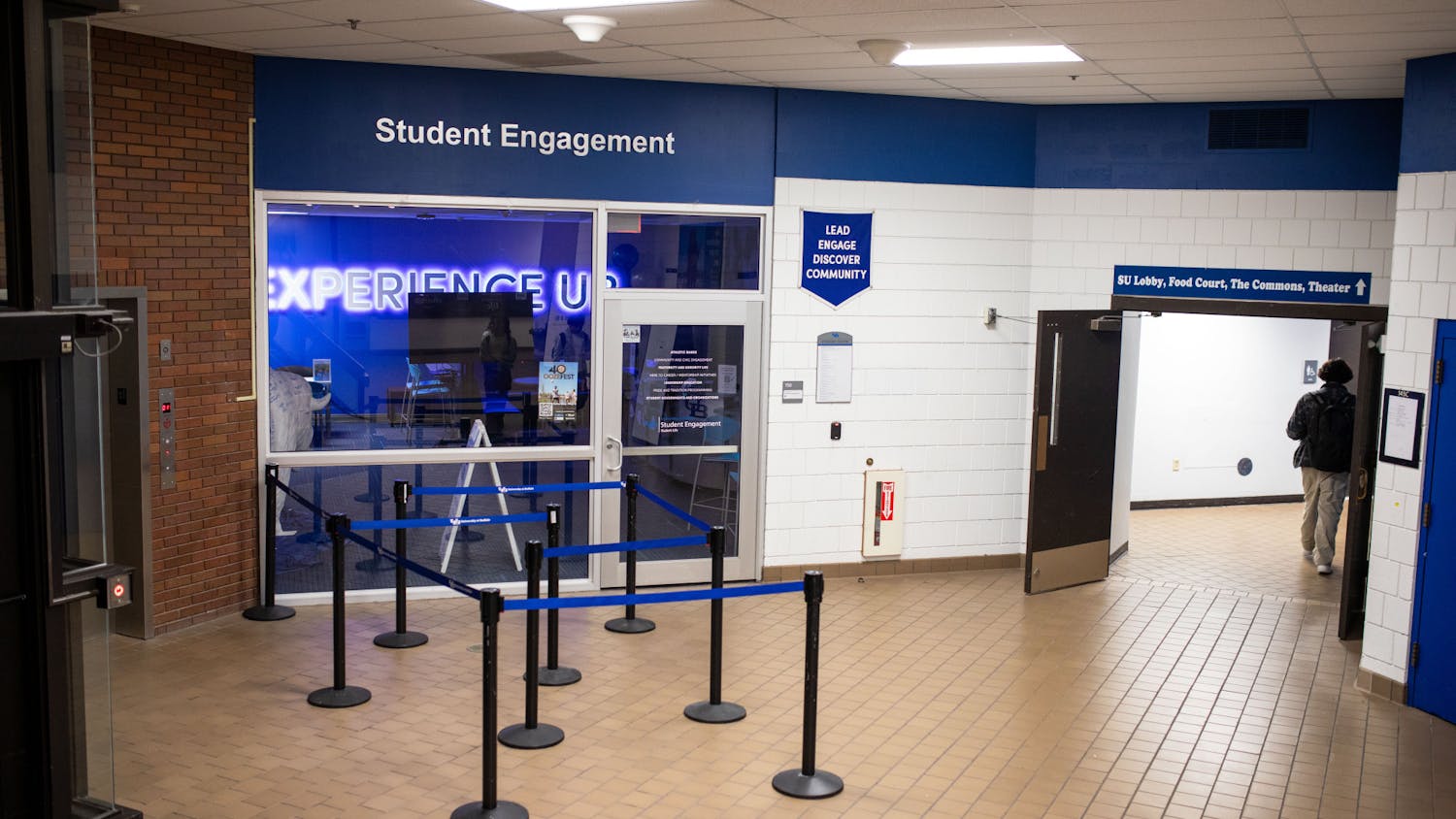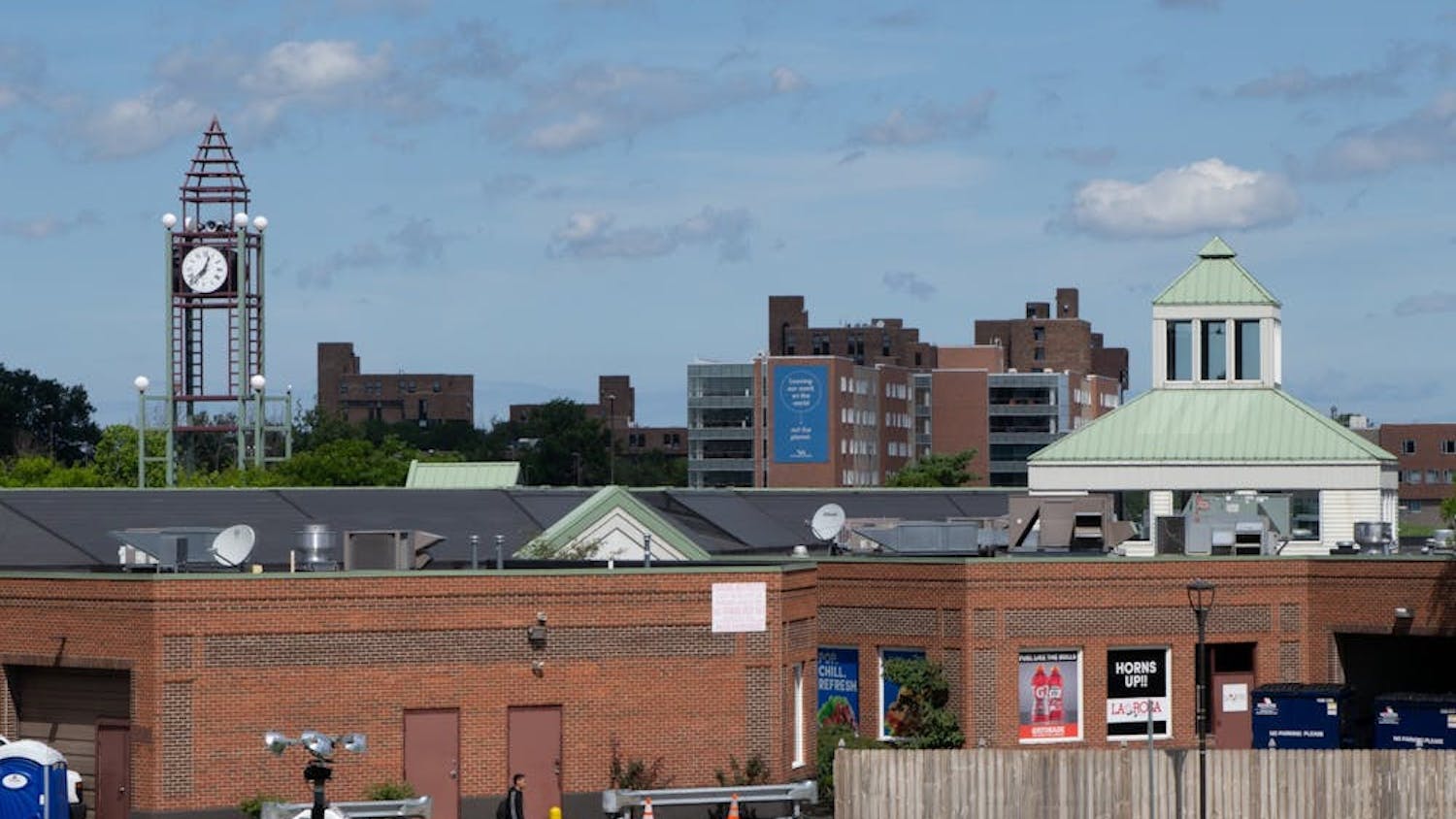The scraps from your on-campus Sloppy Joe or that fourth plate of macaroni and cheese you grabbed at the dining hall aren’t getting sent into a landfill, but back into the earth.
Students may not realize their leftovers are being mixed into UB’s soil, helping on-campus foliage thrive. Campus Dining and Shops (CDS) has been using students’ food waste to produce soil amendment for more than six years, but a lot of students don’t know that.
UB estimates it prevents more than 700,000 pounds of food waste from entering landfills annually, according to Raymond Kohl, the marketing manager for CDS.
“Our recycled scraps can be put into further use … getting maximum use out of our organic materials is important,” said Brian Lounsbury, a sophomore environmental geosciences major. “I had no idea UB offered the waste us students produce in compost form.”
UB’s pre- and post-consumer waste is collected and sent to an on-campus facility to begin the composting process. Composting is the natural process of organic material degrading into an organic matter that is beneficial for all plant growth.
This matter, which some gardeners refer to as ‘black gold,’ is not considered a fertilizer but a soil amendment.
“I think it is awesome UB is helping reduce some of the waste we produce,” said Veronica Kreutzer, a sophomore environmental engineering major. “Being the major campus we are, [UB] should do something to help reduce trash.”
UB hosts roughly 30,000 students who are regularly going in and out of on-campus eateries and producing loads of waste. Normally, the waste breaks down slowly.
It can take months for an eggshell or banana peel to decompose and be used in soil. But UB has a food decomposer that expedites that process, allowing the university to produce soil amendments in about 16 hours.
All pre- and post-consumer waste from around campus is sealed in recycled plastic containers. Those containers are then taken to the Statler Food Commissary in Amherst, where they are emptied and any non-organic materials are sorted out. The material is then fed through a grinder. This process removes moisture and gives the material added surface area, according to Kohl.
The extra surface area and reduced moisture in the product aids in the next step of the process: the food decomposer. This food decomposer takes the organic material and, through a heating and churning process, sanitizes and degrades the waste into soil amendments.
Even though there was an increased cost for UB to compost food waste, Kohl said, “It was just the right thing to do.”
Kohl said composting at UB began as a student and CDS initiative to reduce waste. One of the first steps was helping residential dining halls and other food service spots on campus save as much pre- and post-consumer waste as possible.
With biodegradable napkins, containers, cups and composting, UB is saving thousands of pounds of trash from reaching landfills, according to Kohl. With less trash, dumpster trucks have to come to campus less often, lowering carbon emissions.
UB groups – like the Office of Sustainability and CDS – try to educate students two or three times a year about food waste and composting. They use events like ‘Weigh the Waste,’ where CDS weighs food waste to show students the amount and impact of their waste.
Kohl said one of the next steps of UB’s composting goals is to provide composting bins on campus, so that post-consumer waste can be collected outside of residential dining halls.
“It all starts with educating the students on their food waste,” Kohl said.
Organizations like the Massachusetts Avenue Project – which focuses on improving Buffalo’s local food system – and the Buffalo Zoo use soil amendments to improve the structure of their soil.
Rather than aid with the growth of the plant, this compost increases soil moisture retention, supports nutrients in the soil, increases permeability and drainage and feeds beneficial organisms within the soil. Healthy soil allows for the plants roots to grow faster, deeper and stronger.
Kohl wishes that all post-consumer waste could be saved across campus so it, too, can be turned into compost. But he said it’s not that easy.
“We would need to find space to store all the extra waste,” Kohl said. “We wish it were that simple.”
email: news@ubspectrum.com





